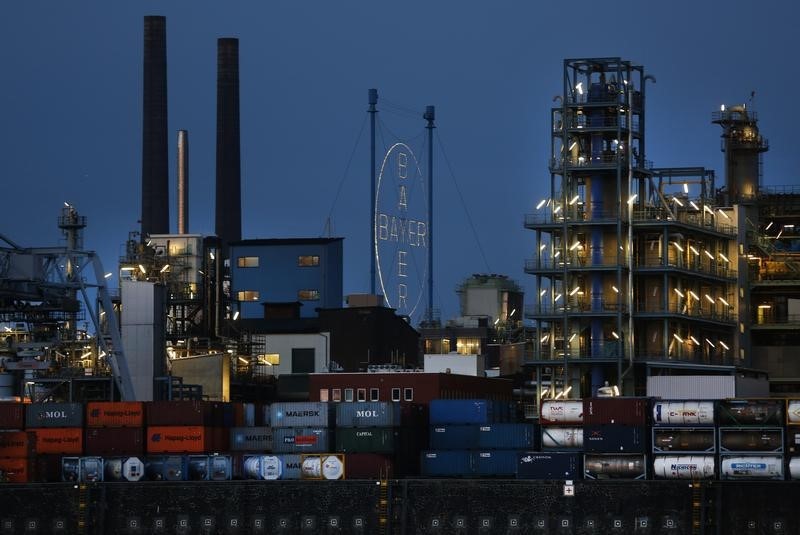By Geoffrey Smith
Investing.com -- The outlook for Europe's largest economy continued to darken in July, as incoming orders to German manufacturers fell for the fifth month in six.
Statistics office Destatis said orders fell 1.1% from June, due to a slump in demand both from domestic customers, which fell 4.5%, and from the Eurozone, which fell 6.4%. That was partially offset by a 6.5% increase in orders from outside the single currency area.
The numbers confirm the downward trend that European manufacturing has been in since the Russian invasion of Ukraine in February. This would have been the sixth straight month of declines in order, had it not been for an upward revision to the May and June data.
Orders, a broadly reliable forward-looking indicator of activity are now down 13.6% from a year earlier, as demand cools in response to heightened geopolitical volatility that drove producer price inflation to over 37% in the year through July.
"Shrinking order books add to current recession fears," said ING analyst Carsten Brzeski. With surging energy prices and fading new orders, the outlook for German industry is anything but rosy."
The numbers come only two days ahead of the European Central Bank's next policy meeting, where the governing council will have to balance increasingly clear risks of a recession against a runaway inflation trend that has repeatedly run ahead of expectations this year. The euro was undismayed by the numbers, however, rising 0.4% to $0.9946 by 03:00 ET (07:00 GMT).
The numbers were made slightly worse by volatile big-ticket items, which typically include items such as aircraft and ships. Stripped of these, orders fell only 0.8%. Another factor weighing on the numbers was a 23.6% decline in pharmaceuticals orders, albeit after a 10% rise the previous month.
